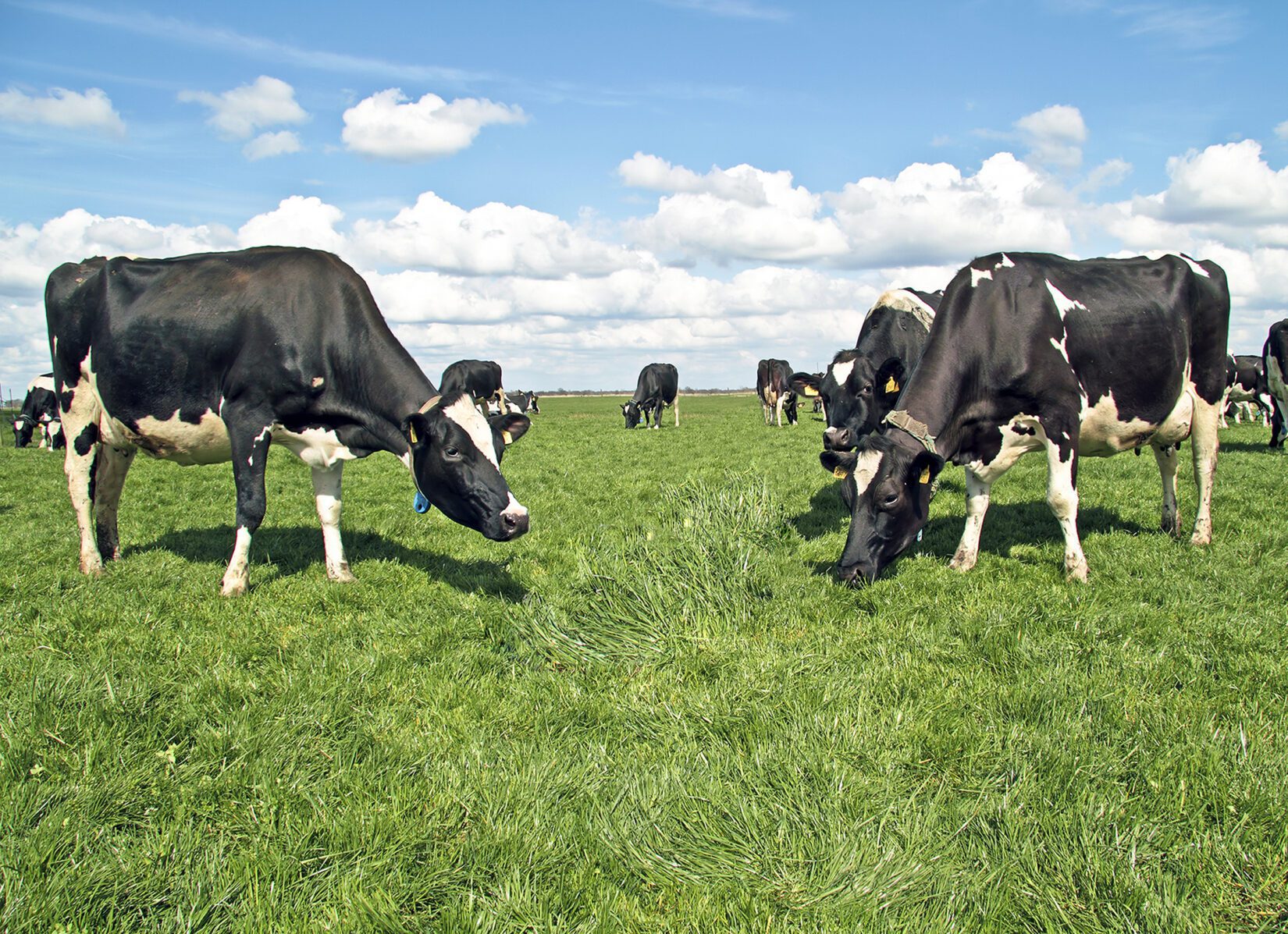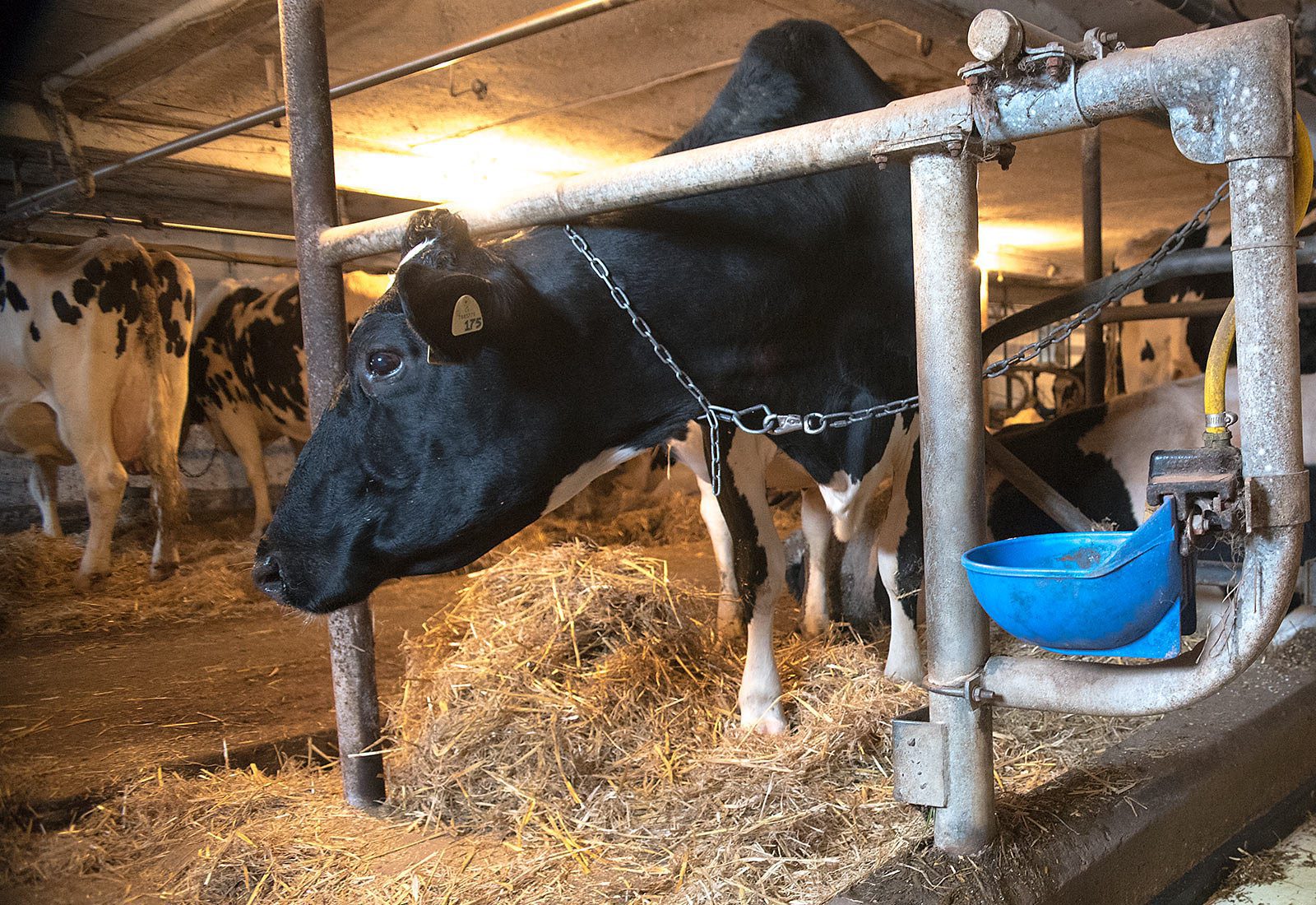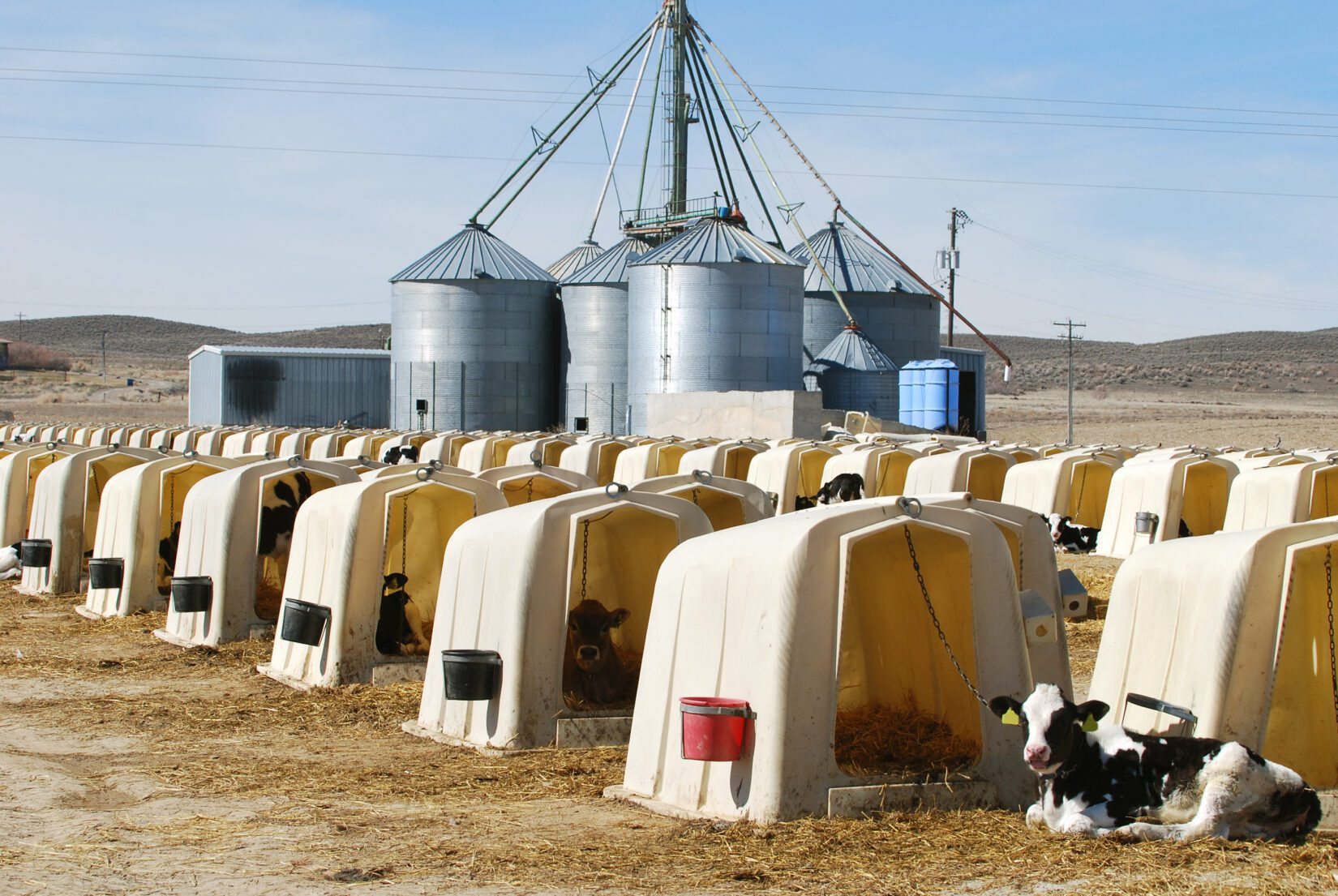An update to the 2009 Code of Practice for the Care and Handling of Dairy Cattle (Code) will improve the lives of the more than 1.4 million dairy cows on farms in Canada.
The updated Code includes new requirements for housing, handling, pain control, and health, among others.
The BC SPCA, along with over 5,800 (PDF) people and organizations suggested changes to the draft Code released in late 2021. Approximately 30% of suggestions came from animal welfare advocates. Other comments came from farmers, academics, and consumers. These comments lead to improvements for cows in the final Code.
For example, a requirement that would allow some farms to delay transitioning calves to group housing was removed, and a requirement for allowing cows in tie stalls more freedom was strengthened. Changes like these demonstrate the importance of speaking up for animals.

Housing for dairy cows is an important issue for many people. Here are the new minimum standards for housing in the new Code:
Housing for dairy cows
Most dairy farms in Canada (73%) use tie stalls. In this type of housing, cows are tied to a specific spot in the barn where they can lay down and stand up but cannot turn around or walk. The good news is nearly all cows in B.C. can freely walk around the barn, as there are only a few tie stall farms in the province. Previously, there was no requirement for cows to be let out of their individual tie stalls. By 2027, all tie stall housed cows will need to be let off their ties so they can move freely (how often and how long still needs to be defined).
There is also a ban on building new barns that do not allow daily exercise for cows. As letting cows in and out of tie stalls each day would be very labour intensive, this likely means that no new tie stalls will be built in Canada, a major win for dairy cows.

Housing for dairy calves
Currently, calves are often housed individually until weaning (around 8 weeks of age). Calves can be tied to a specific spot in the barn, but most often are in small individual pens or outdoors in a small plastic structure called a hutch. By 2031, farmers will need to house calves in pairs by four weeks of age. This will reduce stress and allow calves to develop social skills. This is an important change that will improve calf welfare on dairy farms across Canada.

What’s next?
Read the full Dairy Cattle Code to view more changes for dairy cows. The BC SPCA advocates that farmers act now to improve the welfare of their cattle, rather than waiting for the implementation dates. We will also keep a close eye on how the animal care assessment defines ambiguous requirements and continue to call for improved welfare on farms.
